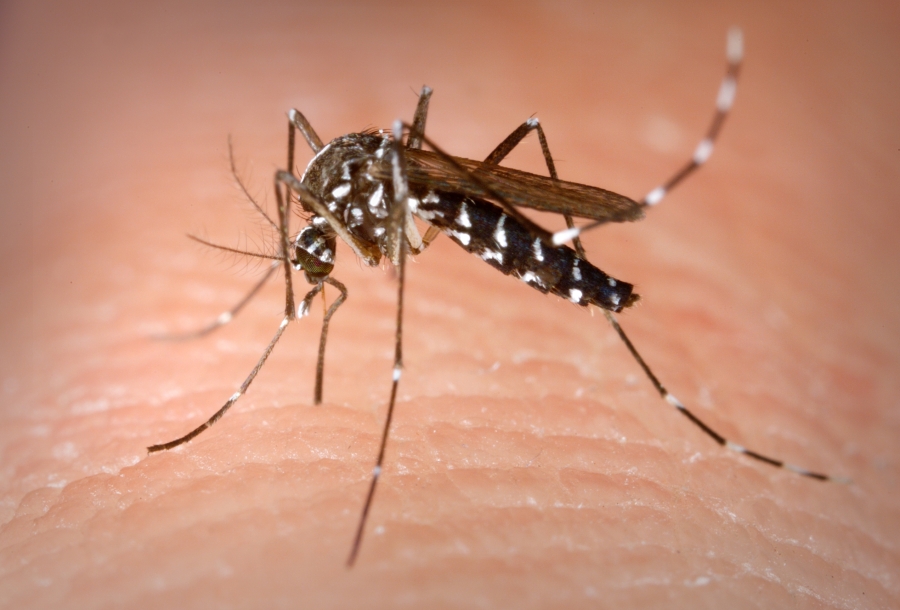One of the leading cause of morbidity and mortality in Kenya is Malaria with over 70% of the population at risk. It accounts for 30-50% of the outpatient attendance in most health facilities. Its death on children under the age of five years is 3000 annually. The Center for Disease control estimates that 4000 Kenyans die due to malaria every year. There is a tremendous effort by researchers and government institutions towards prevention and treatment. Although the country is still far from defeating this leading cause of mortality in Kenya, various personal interventions can help in combatting this menace. Early treatment and a regular use of bed net are some useful response.
The severe blood disease is caused by Plasmodium parasite transmitted through Anopheles mosquito bite. When an Anopheles mosquito bites your body, the microscopic Plasmodium parasites enter your blood stream and invade the liver cells. The parasite then renters the bloodstream where they severally destroy the red blood cells causing the clinical symptom of malaria. In most cases malaria-infected patient experiences profuse sweating, headache, shaking chills, nausea, and occasional diarrhea. Since a mosquito bite is the number one predisposing factor to malaria, it is critical to making every effort to avoid its bite. Although one would expect mosquitoes to bite human at random, scientific research has shown that more some people are more prone to mosquito bites than others.
Odorant
Your smell is the principal way in which mosquito detects you. Most blood arthropods are attracted to carbon dioxide as both attraction and activation. Since everyone exhales carbon dioxide, there are specific skin emanations that a mosquito may prefer than anyone else, if given a choice. The human skin excretes (S)lactic acids that mostly attracts a type of mosquito referred to as Anopheles Gambia, the number one causative agent of malaria in Kenya. A higher concentration of (S)-lactic acids in your skin will reward you with more mosquito bites. The presence of certain bacteria in your body has also been speculated as to why mosquito may easily choose and prefer one person to the other.

Source: http://www.ochempal.org/index.php/alphabetical/q-r/racemic-mixture/
Color
You will be surprised, but mosquitoes just like you, have the sense of vision. Their sense of vision is, however, indigent and have been reported to play a slight role in host preference. Many scientists believe a mosquito will be attracted to a dark person compared to their light skin counterpart. In fact, color is known to affect the breeding site of most mosquitos’ species. That is why you will always get these blood-sucking insects on the dark corners of your house. You will naturally receive more mosquito bite in a dark room than a well-lit home.However, it is uncertain whether it is a combination of color and other clues such carbon dioxide emission that actually count in mosquito bite.

Source:http://www.thevitpro.com/vitiligo-blog/the-weird-and-wonderful-world-of-skin-colour-part-4
Body heat
Humans including our counterparts’ animals exude heat from the metabolic activity. Heat is one cue that attracts mosquito to your body. Different people produce a different amount of heat. Huge bodied people emit more heat compared to skinny one. The more heat you produce, the more mosquitoes you attract to your body, and hence an increase in mosquito bites making you more prone to get malaria. Body heat creates conventional currents that quickly transport another body cue that attracts mosquito. A malaria sick person will exhibit fever and rise in their temperature. Ironically, the mosquito may choose to bite a sick person compared to a healthy individual in the same room.

Body mass
The size of the body as indicated above play a critical role in mosquito preference. A large person excludes the high amount of olfactory cue and therefore attracting more mosquito bites. A higher body mass translates to a higher production of metabolic carbon affecting a range of mosquito to your body. This concept explains why mosquitoes compared to you will bite your child less often. Do not think the mosquito is discriminatory; your body size sold you!

Source: http://crossfitjozi.co.za/2015/07/thursday-09-07-15-weight-vs-fat-loss/
Gender
Yes, mosquitoes express differences preference between males and females. The reason for the difference in preference is associated with different odor profiles between men and women. For instance, a mosquito type is commonly known in transmitting yellow fever, dengue virus, and Zika virus; Aedes aegypti is known to be more attracted to women due to their estrogen component in their urine. Anopheles Gambia another mosquito species that commonly known for contracting malaria has repeatedly been shown to be attracted to pregnant women than any other category of people. Women are also known to use different perfumes and deodorant compared to males, explaining why a mosquito will in arguably bite more women than men placed in one room.

Source: http://tw.123rf.com/photo_7227886_3d-male-and-female-silhouettes.html
Defense behavior
The degree to which a mosquito bites a human host is not only affected by color, odor body size and gender but also on the effectiveness of deference response. In a research done on laboratory mice, healthy mice were bitten significantly less than malaria-infected ones. The same applies to the human host, a sick individual or a host who exhibits less defense behavior attract more mosquito bites and a more likely to contract malaria.
References
Center for Disease Control and Prevention. (2015). Malaria. Retrieved on 26th August 2016 from https://www.cdc.gov/malaria/malaria_worldwide/cdc_activities/kenya.html
Takken, W., & Verhulst, N. O. (2013). Host preferences of blood-feeding mosquitoes. Annual review of entomology, 58, 433-453
https://en.wikipedia.org/wiki/Aedes_albopictus

Mosquitoes….Quite discriminatory.
LikeLiked by 1 person
Informative articles…great work brother!
LikeLiked by 1 person
Thank you Ken
LikeLike